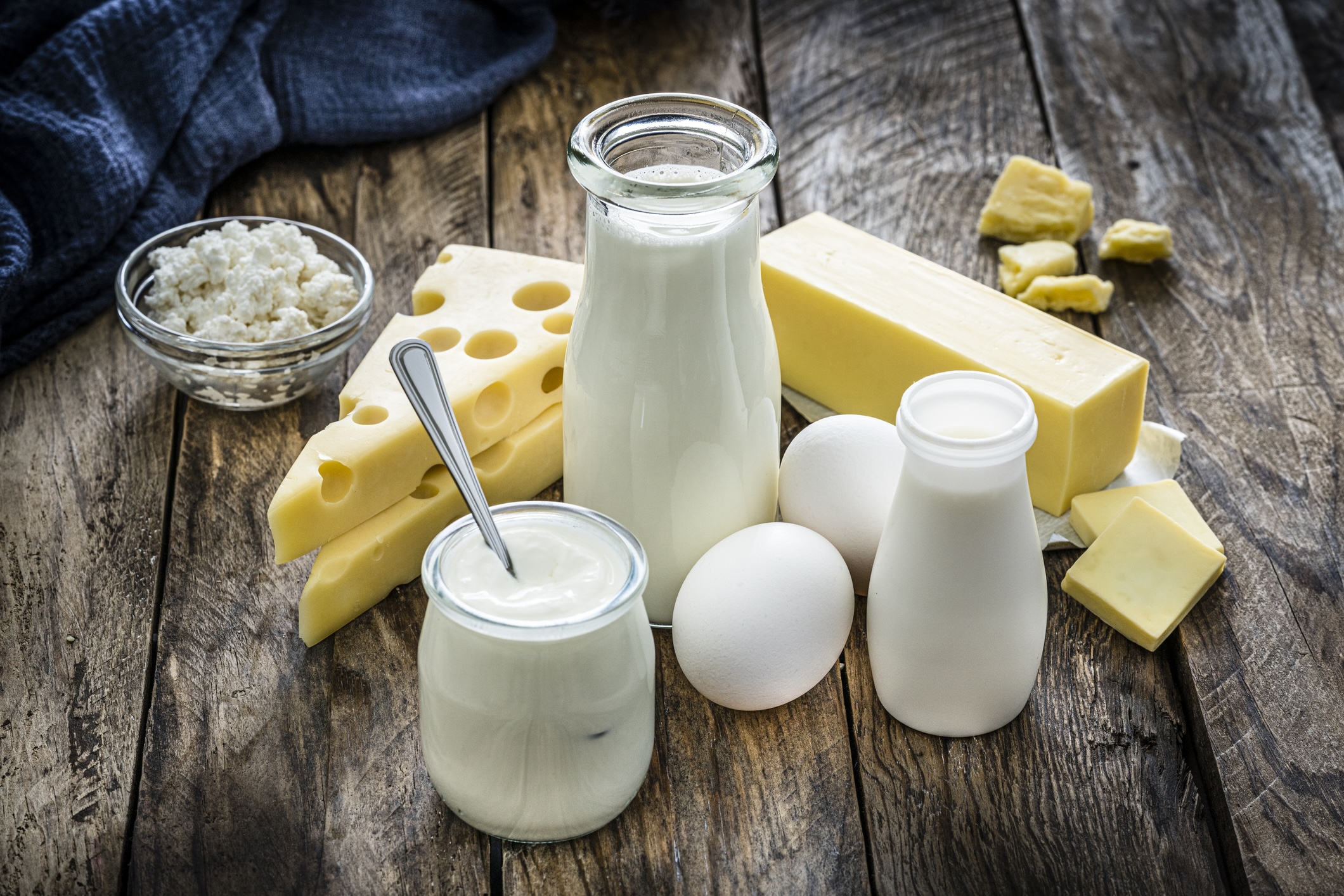Top Health and Food Trends for 2025: Wellness, Longevity, & More

As we step into 2025, the health and food landscape are evolving with exciting innovations and shifts, reflecting a growing emphasis on sustainability, wellness, and the science of living better, longer lives.
Female health will emerge as a major trend in 2025
Female health will continue to take centre stage in 2025 and beyond, with a growing recognition of the unique challenges women face throughout their lives. Among these, the need for comprehensive care during the perimenopause and menopausal years is becoming a key focus in both healthcare and wellness sectors.
Historically, clinical studies have predominantly been conducted on men, leaving women underserved in research and medical advancements. This has resulted in significant knowledge gaps and limited resources tailored to women’s specific health needs, particularly in areas like hormonal health, bone density, and cardiovascular care, which are profoundly affected during midlife transitions. I’d also like to see the inclusion of research into helping sufferers of endometriosis.
Rising investments in the women’s healthcare are bringing a new era of innovation, with funding directed toward research and development.
Women will benefit from nutraceuticals and functional foods tailored to support hormonal balance, energy levels, and gut health during this life stage. Integration of traditional and alternative therapies, such as mindfulness, acupuncture, and lifestyle coaching, alongside conventional medicine will become common place.
Longevity backed by scientific evidence
Longevity will be the overriding trend in 2025 as advancements in science, technology, and wellness come together to help people live longer, healthier lives. Ageing populations worldwide are driving interest in programmes to extend health span—the number of years lived in good health—through personalised nutrition, innovative therapies, and lifestyle interventions. Breakthroughs in areas like cellular health, anti-inflammatory diets, and DNA repair are making longevity more attainable, while consumer demand for products and practices that promote vitality and prevent age-related diseases continues to grow. This focus on thriving, not just surviving, is redefining how society approaches ageing.
Discover our products formulated to promote Cellular Health and Longevity
Mental wellbeing
There will be an increasing emphasis on mental health support, addressing issues like anxiety, depression, and brain fog often linked to hormonal changes.
This increase in attention is more than just a trend—it represents a profound cultural and scientific shift toward addressing women’s health. With the spotlight now on the unique needs of women during perimenopause and menopause, 2025 is set to be a crucial year for empowering women with better tools, treatments, and care.
As society progresses, this movement has the potential to redefine how women experience midlife and beyond, giving them the opportunity to achieve optimum health through these life-changing years.
Gut health and probiotics
Gut health and probiotics will remain essential in 2025, driven by rising consumer awareness, ongoing research, and wellness trends. Studies on the gut-brain axis highlight the link between gut health and mental well-being, showing how probiotics can improve mood, reduce anxiety, and boost cognitive function. A healthy gut microbiome plays an essential role for immunity.
Additionally, gut health is key in managing lifestyle-related conditions like obesity, diabetes, and autoimmune diseases. Probiotics and prebiotics are being explored to restore gut balance and support prevention or management of these issues, offering new hope for better long-term health outcomes.
Hydration
Hydration and electrolytes will be increasingly important in 2025 as people continue to prioritise active lifestyles and overall wellness. With the growing awareness of how cellular hydration impacts energy, cognitive function, and energy levels, consumers are turning to electrolyte-rich solutions to maintain balance.
Brain cognitive health
Brain health and cognition will take centre stage in 2025, driven by scientific advancements and growing awareness of the importance of mental wellbeing. As the global population ages, the number of senior citizens that are suffering from cognitive decline and neurodegenerative diseases like Alzheimer’s and Parkinson’s is increasing. This trend has highlighted the need for preventative care to maintain cognitive function and brain vitality.
In addition, modern lifestyles lead to high stress levels, poor sleep, and a reliance on digital devices to create a toll on mental health and brain performance. People are looking for ways to enhance focus, memory, and resilience to stress, recognising the critical role of brain health in maintaining productivity and quality of life. Cognitive support is no longer just a concern for the elderly; it is now a priority for people of all ages, including younger generations seeking to enhance their mental capacity in an ever-busy world.
Increasing elderly population
In the Western world, the steadily increasing elderly population continues to put significant pressure on healthcare systems. This growth is driven by longer life expectancies and declining birth rates, creating demand for age-related care and resources. As healthcare systems face capacity challenges, there is a pressing need to develop solutions that enable older adults to maintain their independence and quality of life at home for longer, thereby reducing reliance on institutional care.
Remote health monitoring, powered by wearable devices and telemedicine platforms, allows healthcare providers to track patients’ conditions in real time to allow timely interventions without requiring hospital visits. Another service that will help to alleviate pressure will be the increase of mobile healthcare units to offer everything from routine checkups to specialised treatments. These advancements improve access to care for the elderly and ease the strain on systems like the NHS, enabling more efficient resource allocation and reduce the burden on hospitals and care facilities.
Discover the trending foods for 2025
Organic grass-fed beef is expected to trend in 2025 as consumers increasingly prioritise sustainability, health, and ethical food choices. Grass-fed beef is back in popularity for its superior nutritional profile, offering higher levels of omega-3 fatty acids, antioxidants, and vitamins compared to conventional beef. The organic certification assures consumers that the cattle were raised without synthetic hormones, antibiotics, or pesticides.
Tinned fish will be making a comeback in our cupboards. While we might have given tinned tuna a miss canned mackerel is having a heyday with sales up by 74% and tinned sardines are beginning to make waves too.
Ultra-processed foods (UPFs) will be a key focus as awareness of their negative health impacts continues to grow. Studies linking UPFs to conditions such as obesity, heart disease, and mental health challenges are seeing consumers refocus on whole, minimally processed foods. Governments and health organisations are taking steps to enforce clearer labelling, public education campaigns, and restrictions on UPF advertising to encourage healthier choices. Meanwhile, consumers are increasingly seeking natural, nutrient-dense alternatives, aligning with the broader movement toward preventive healthcare and sustainable living. This collective effort signals a major step toward improving public health outcomes and reducing the burden on healthcare systems.
Read our blog on ultra-processed foods and why you should avoid them.
Dairy is back on the menu. Recent findings have highlighted the value of dairy products in supporting health and longevity. Foods like milk, cheese, and yogurt provide essential nutrients, including calcium, vitamin D, and high-quality protein, which are crucial for preserving bone health and muscle strength as we age. Emerging research suggests that full-fat dairy may not pose significant cardiovascular risks and could even have protective effects. Fermented dairy options, such as yogurt and certain cheeses, are also rich in probiotics, which boost gut health, enhance immunity, and help reduce inflammation. Additionally, bioactive compounds in dairy have been associated with better metabolic health and a reduced risk of type 2 diabetes, reaffirming its role in a well-rounded diet for longevity.






